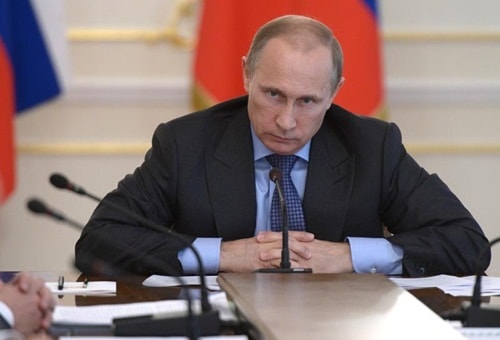Russia is running out of money
Money is flowing out of Russia at an alarming rate, with the country's emergency fund holding just $32.2 billion after nearly two years of recession, the Russian Finance Ministry said.
In September 2014, just before oil prices began to plummet, the figure was $91.7 billion. And things are getting worse. Analysts predict the fund will have just $15 billion left by the end of the year and will be depleted completely after that.
“At the current rate, the fund will be depleted by mid-2017, or just a few months from now,” said Ondrej Schneider, chief economist at the Institute of International Finance (IIF).
The government reserve fund is designed to cover shortfalls in the national budget at times when oil and gas revenues are low. Russia’s 2016 budget was designed based on an oil price of $50 a barrel. However, the average oil price for the first eight months of the year was just under $43.
 |
Russian President Vladimir Putin at a meeting in Moscow. Photo: Reuters |
As a result, oil now accounts for just 37% of the Russian government’s revenues, down from 50% two years ago. The decline means they will have to continually tap into their emergency fund, which the government has indicated could be turned to the welfare fund, which currently has more than $70 billion, to pay pensions and invest in large-scale projects.
The Russian central bank yesterday cut its key interest rate from 10.5% to 10% to stimulate the economy. It still has $395 billion in international reserves, down from $524 billion in October 2013. It spent more than $140 billion in foreign reserves in 2014 and 2015 to support the ruble.
But the strategy proved ineffective, and Russia eventually abandoned it. In January, the ruble hit a record low of 82 to the dollar. It has since recovered somewhat, trading at 65 to the dollar.
The oil price plunge comes at a time when Russia’s economy is struggling because of Western sanctions over the Ukraine crisis. Key Russian companies are barred from accessing European capital and many food imports, and officials have had their foreign assets frozen.
Russia also retaliated by banning Western food imports. This not only caused headaches for European farmers, but also pushed Russia into a period of double-digit inflation.
According to VNE
| RELATED NEWS |
|---|
